It’s been a month now, and we keep discovering new dimensions of the disaster. We know our flood is not Kyiv under Russian bombardment, nor the Maui fire – but it’s bad. Our hearts go out to the people there with greater understanding.
But even as we come back, the flood keeps ramifying, manifesting in surreal moments and strange ways. I’ll add some details about the aftermath, but first some photos.
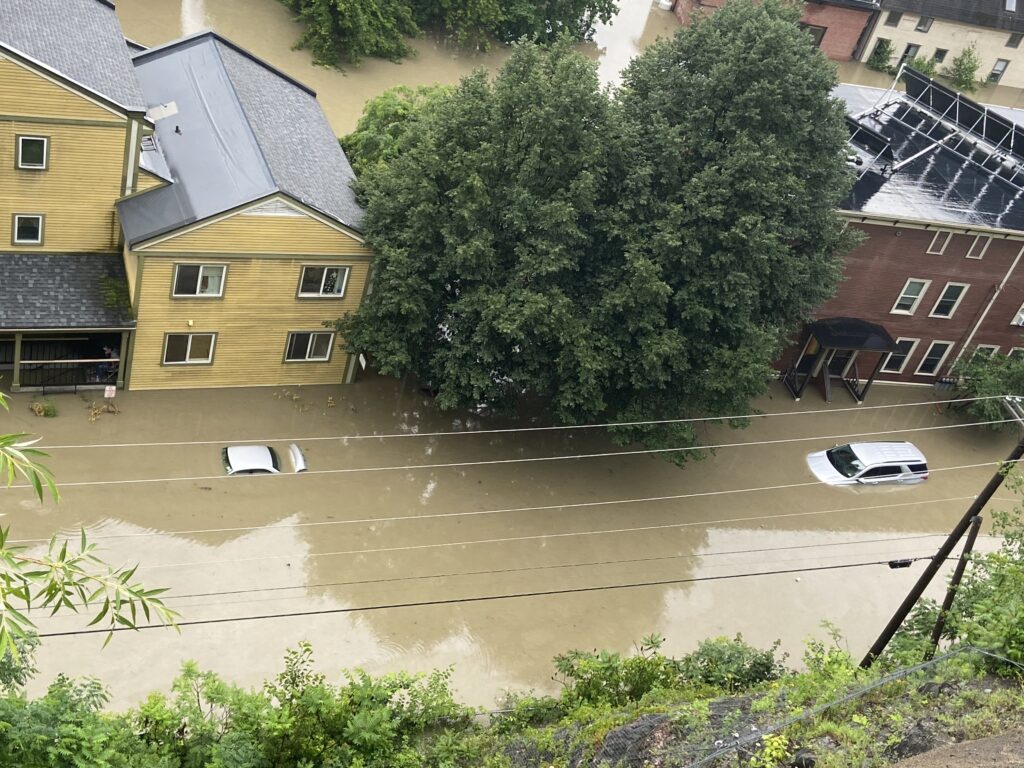
Skunks: When the water was rising fast, at twilight, we watched as a family of skunks boiled out of their flooding burrow beneath a neighbor’s house. The mother and three kits, each the size of your two fists put together, tumbled out into the rain and humped away from our yard, toward Elm Street.
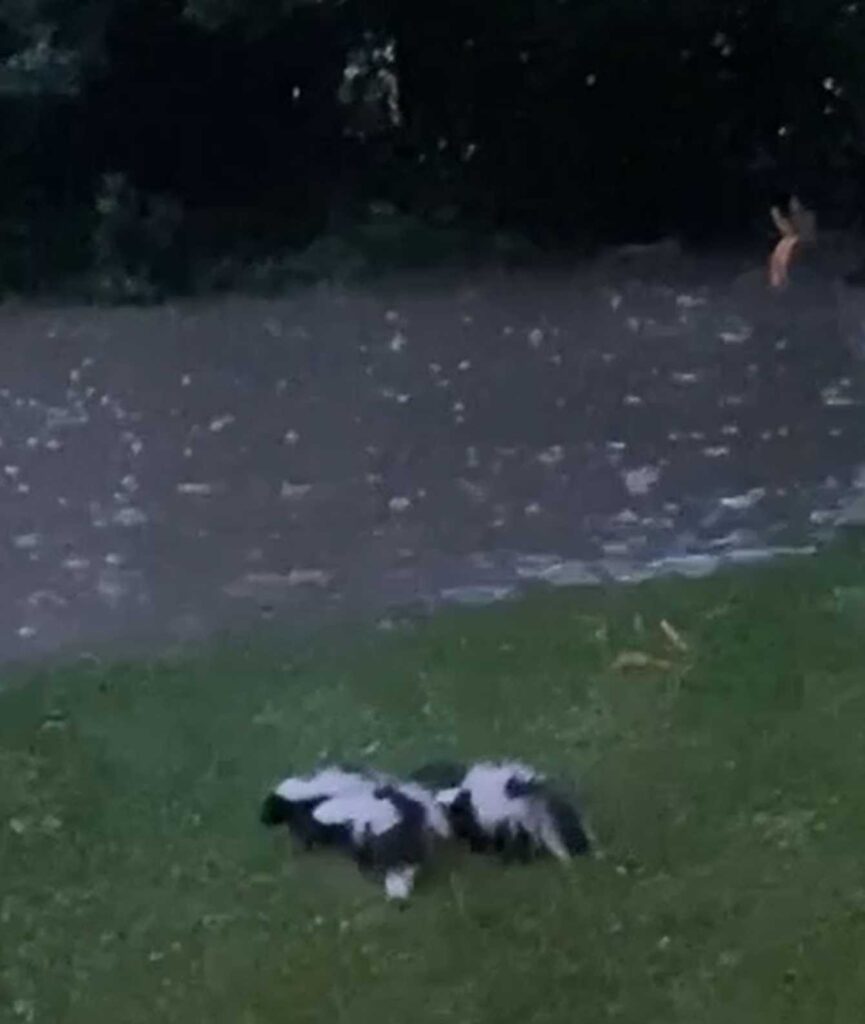
But Elm Street was now a river and heading right back at them. Soon, the kits returned across our lawn without their mother. At intervals they’d stop, befuddled by the pounding rain, huddling, milling, shivering. I wore a white T-shirt, and they came right up to me, in the dim light perhaps seeing me – big, white – as mom. But a few feet away they stopped and cowered as I didn’t seem quite right.
We set up a shelter against our house wall, but they didn’t tarry there. And they were lucky, or smart, because the water arrived there within half an hour.
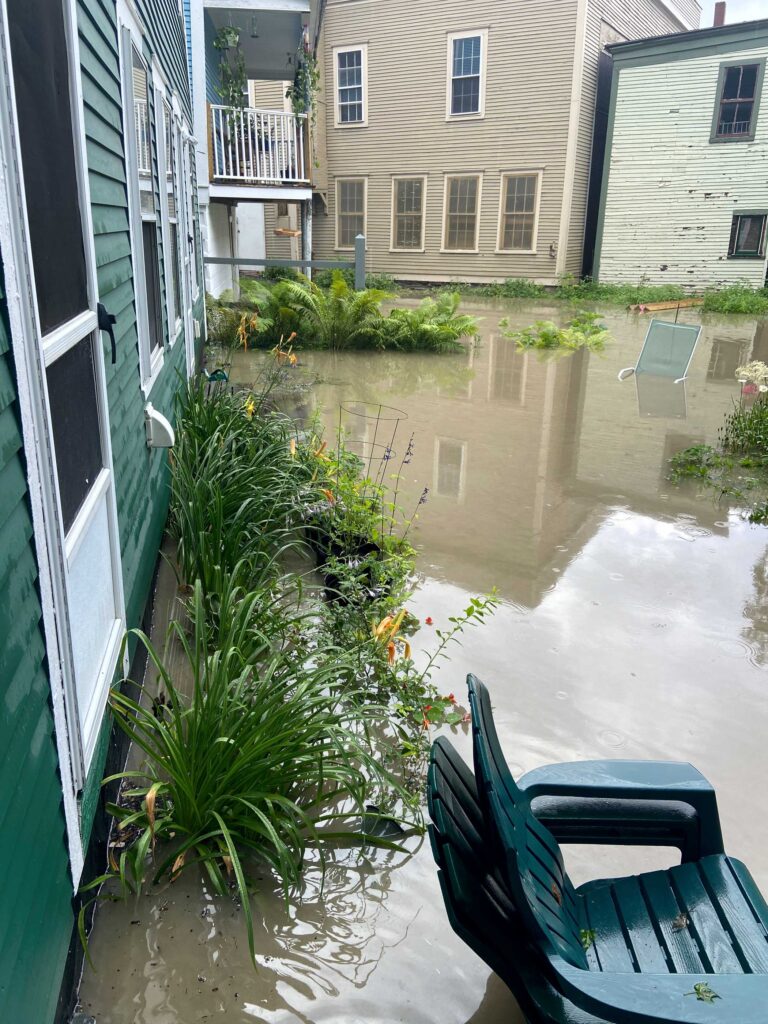
The good news: We’re sure they made it to higher ground, because they’re back to stinking up the yard, just a little, every night.
Kayaks: When the water was high that night, and again the next day, our sons went out in kayaks to cruise downtown. Water pressure against store windows set off their alarms, and merchant friends called us asking if we could check on them. We live only a block or so away. It was exciting – in its sheer strangeness and novelty – to kayak through streets.
Liam provided a good photo op as he paddled past the county courthouse, two blocks from our place, ironically beneath a sign erected during the deepest phase of the Covid lockdown. Or was it put up after the 2011 flood? Or is it even all that ironic? It gets blurry, here in the aftermath.
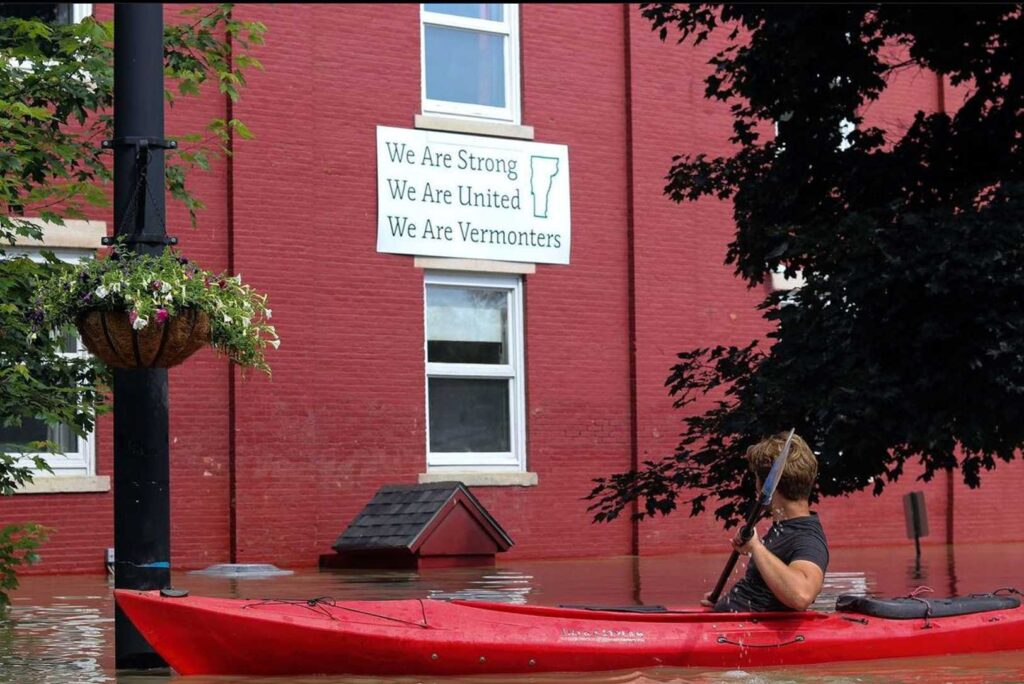
Surreal debris: In any case, the thrill fades after the water subsides and only the wreckage remains. As I set to work repairing our electrics and ruptured plumbing, to scraping out silt and carrying debris out of our place, thousands of volunteers converged on downtown to carry sopping trash out of cellars and ground floors. Books, chairs, computers, shelves, rugs, crumbling drywall, lamps, pianos, clothes, flooring: They piled it in the street, where it accumulated for weeks. Eventually, crews came with equipment to remove it.
In all, 1,680 tons of debris had been collected as of last week. For a long time, this historic town, the state capital and county seat, looked everywhere like the photo below.
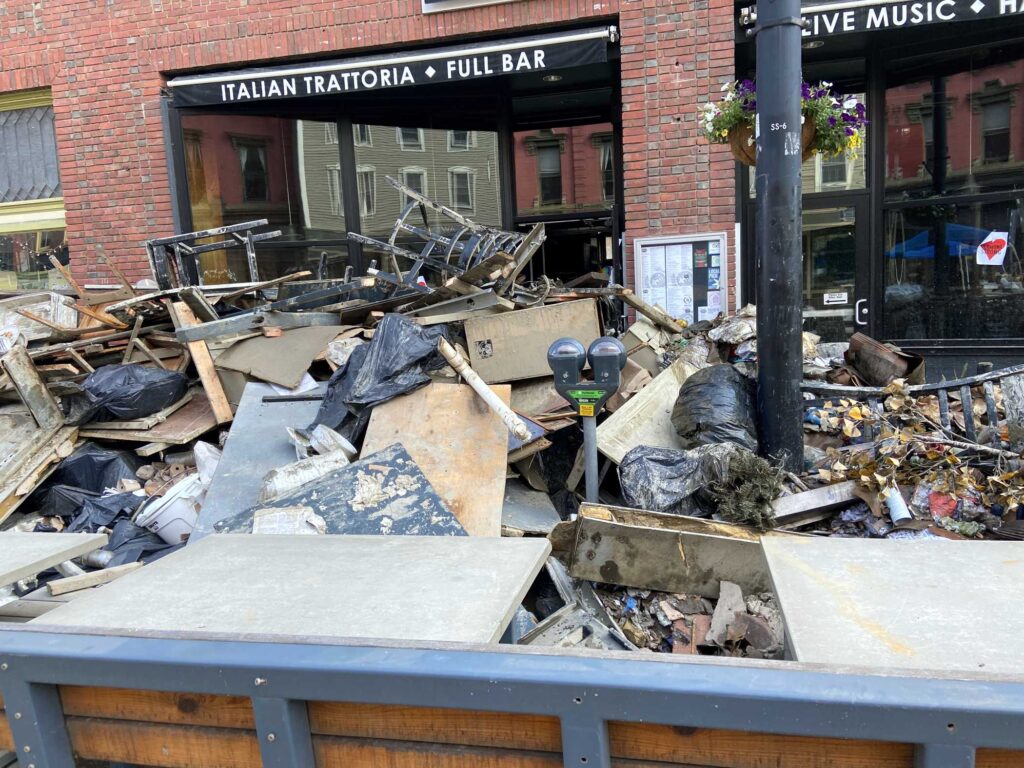
Spiders: It hits home in the strangest ways. Liam, kayaking hero, went around emptying basements with a gas-powered pump borrowed from his employer. He also helped haul debris out of these 150-year-old stacked-stone cellars — where he got bitten by a brown recluse spider. It’s a small arachnid whose bite doesn’t hurt right away but which is particularly insidious. No neurotoxic venom for this critter; its poison quietly starts killing flesh. Necrotized flesh infects and can release poisons that cause brain and heart damage. Within a week, Liam’s two fang marks metastasized into a huge ghastly ulcerating wound, requiring two trips to the hospital and potent antibiotics. I’ll skip the photos for this one.
The good news: A month on, he’s doing fine, and is wondering what evolutionary advantage such an odd poison conferred upon the brown recluse’s ancestors.
There is a lesson in all this, but not one easy to absorb. Humanity’s time on Easy Street is coming to an end. The benevolent climatic window that permitted us to spread to all parts of the globe, master agriculture, build great cities, and refine culture to almost infinite nuance – that window is closing fast.
This is Vermont’s third “100-year” flood in 30 years, a pattern that fulfills climatogists’ projections. Climate change is upon us. Now. Not in some abstract future.
Lest this seem only a dire post, I should add that I have always felt that good things will be found in the coming, unavoidable, paradigm shift. Humility will be good for us. Decreased reliance on material goods will ease our stress of want and competition. Stronger links to local, real (not internet) communities will strengthen us – and be more fun, frankly. Learning respect for, and practicing wise collaboration with – not dominance of — our fellow creatures and plants will help us recover our souls.

